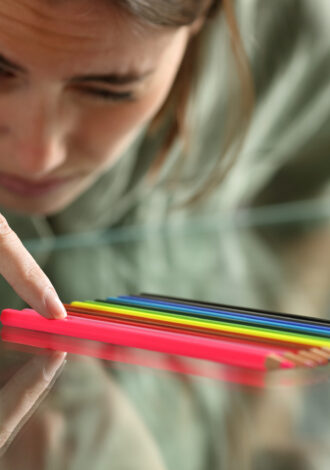Perhaps you’ve read (or seen the movie) “Love in the Time of Cholera,” by Nobel-prize winning, Columbian-author Gabriel Garcia Marquez. The best-seller title plays on the English word for the disease, as well as the Spanish word colera — a word denoting passion — suggesting the search for true love as both passion and disease.
Given the daunting proliferation of online dating apps that can lean toward the downright weird, women re-entering the dating game after a long-term love relationship ends, might agree. HighThere! is an app for weed enthusiasts. Mullet Passions is for fanciers of that ’70s look. Always wanted to date a pirate? You’re in luck with Pirates Passions. Finding love in the time of Tinder isn’t old school.
It can be off-putting to upload your profile into an algorithm pool of those who take mere seconds to swipe left (not interested) or right (interested) on your smiling face. However, the upside is that it appears to be an effective way to find a meaningful relationship and, potentially, someone you might marry. Michael Rosenfeld, a sociologist at Stanford who has been conducting a long-running study of online dating, found that people who meet online actually progress faster to marriage than those who meet offline.
Dating apps allow you to interact with a wider range and number of people than you could meet IRL (in real life). For age, religion, occupation or personal interest subsets, that’s an even more pronounced advantage. And, there can be a certain level of self-empowerment that feels less risky than sitting at a singles bar or walking in solo to group events.
The growing numbers of users suggest that online dating works for lots of people, including industry investors: It’s projected to become a $12 billion industry. Millennials aren’t the only ones driving up that number; people under 25, Gen X users, and Boomers are significantly growing demographics.
- According to a 2016 Pew study, 41 percent of Americans say they know someone who uses online dating; 29 percent know someone who has met a spouse or long-term partner via online dating. Here’s what else the Pew respondents said about finding love online:
- 80 percent of Americans who have used online dating agree that it’s a good way to meet people.
- 62 percent agree that online dating allows people to find a better match, because they can get to know a lot more people.
- 61 percent agree that online dating is easier and more efficient than other ways of meeting people.
- 45 percent of online dating users agree that online dating is more dangerous than other ways of meeting people.
- 31 percent agree that online dating keeps people from settling down, because they always have options for people to date.
- 16 percent agree with the statement “people who use online dating sites are desperate.”
If you’re game to give it a go, the first step is finding the online dating app that fits you and your interests. Match, Tinder, eHarmony, EliteSingles, OkCupid, Zoosk, BlackPeopleMeet, and OurTime are among the most popular. But, there are hundreds more to choose from that target shared interests even more narrowly. Even Facebook has gotten into the online dating industry.
What to Watch Out For
- Stranger danger: Same common sense advice as offline dating applies: Stick to the site’s messaging for all communication and always keep your personal contact information private, meet only in public places, limit your consumption of alcohol, pay for half the bill, etc. You should be aware that some research has shown that sex offenders target online dating sites. So it’s up to you to do your own sleuthing on people you want to meet.
- Pinocchio lives online: Lying is easy on a profile. In a study of 1,000 UK and U.S. profiles, 53 percent said they lied, mostly on things like posting younger pictures.
- It’s all about the hook-up: At least that’s what some men assume, so be prepared for a degree of creep-factor communications and other crappy-communication habits (like submarining or ghosting) that happen online.



 3 min read
3 min read


